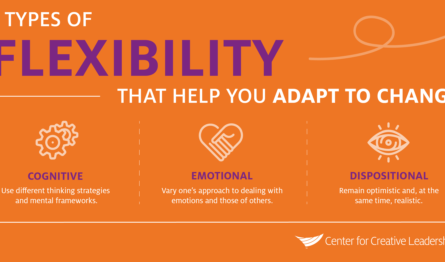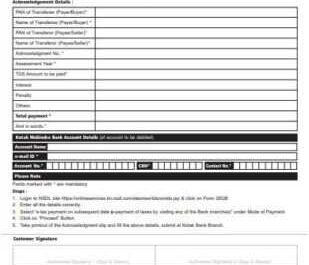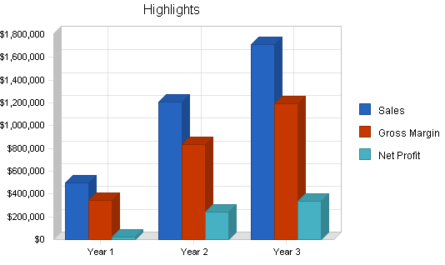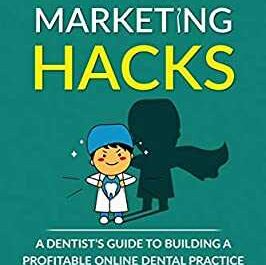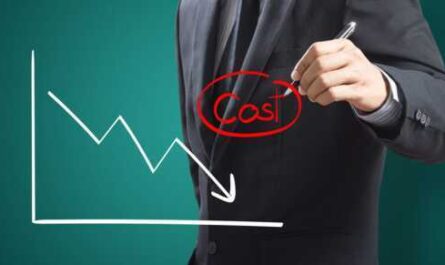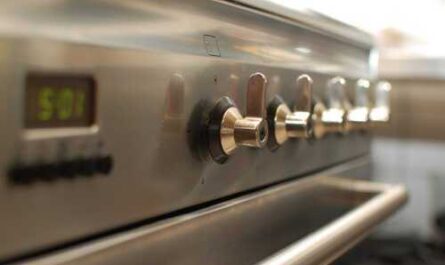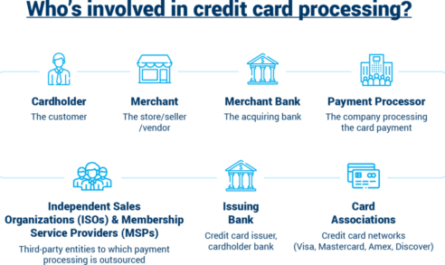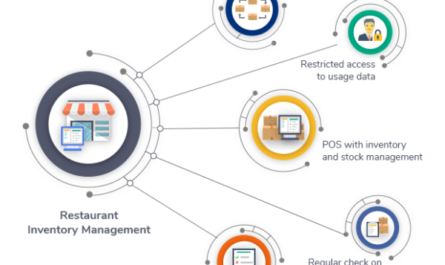Are you afraid of losing your hard earned money due to inflation or recession? here are the 20 best ways to protect your money against inflation or economic collapse.
There are certain things in life. Things like taxes, death and of course inflation. Certain external factors, such as inflation and economic collapse, can significantly reduce the value and purchasing power of money. This suggests that keeping money in the bank as savings may not be the best idea if you want to protect the value of your money during these dangerous times.
In this sense, it would be prudent to seek out investments and other avenues where you can “put” your gross money in such a way that it is tangible while being able to withstand most forms of adverse economic conditions.
What is economic collapse?
An economic collapse means the collapse of the national economy. It will be characterized by a decline in economic activity over a long period, increasing hardship, increasing poverty and various forms of civil unrest such as protests, riots and possibly violence, etc. there may be a case of deep recession where society is still functioning normally, but with much more poverty in the system. Or it could be much worse.
What is inflation?
On the other hand, inflation is a constant increase in the general level of prices of goods and services in a country, which is measured as a percentage of annual change. Under conditions of inflation, the prices of things increase over time. Concretely, during inflation, every dollar you have becomes even smaller than it was before inflation, because the amount of goods and services that it can buy has decreased.
Economic progress has been accompanied by inflationary pressures. Inflation can result from too much money in the economy, causing the prices of goods to rise. Of course, if households, the two main sources of wealth creation – assets and rising incomes – grow at a rate equal to or greater than inflation, the negative effects of inflation are offset.
But experience has shown that this never happens, with the main indicator of this effect being that although the minimum wage has increased, the total price of goods has exceeded the increase in the average wage in recent years. With this in mind, it is imperative that individuals and investors understand and implement investment strategies that ensure that the value of their assets does not decline over time.
In most cases, the most dangerous things for your business are the things you might not think about or the things you might even ignore. Inflation is one of those forgotten risks. People don’t see inflation as a big deal as it has been kept in a tight circle for the past five years, averaging just 1.6% per year for major consumer goods.
However, history and economics can agree that it will not stay that way forever. So how do you protect your money from inflation and economic collapse? There are several ways to do this:
20 Best Ways To Protect Your Money From Inflation And Economic Collapse
1. Get Rid of Your Money: Some people who dislike taking risks may not like it, but the truth remains the same: During times of rapid inflation, the value of money can drop dramatically over time. a short period of time. One way to deal with this is to spend money.
Why not buy the car you’ve always wanted to buy now and not next year when the car goes up? Why not invest in the stock market now and get more stocks now rather than later . Leaving your money in the seat will make you more valuable in the long run.
2. Funds Target Date : The pension funds to target date are designed to allocate assets based on the time horizon. For example, the Target Date 2021 fund is for investors who plan to retire (and therefore start withdrawing money) within the next five years.
As a result, investments will be distributed in a more conservative manner. The Target Date 2065 Foundation, on the other hand, will be much more aggressive. The advantage of this is that you don’t have to worry about asset allocation and balancing.
The foundation takes care of the maintenance on your behalf. Some brokerage firms have also started selling funds with target dates based on index funds that have a low expense ratio. For example, a twenty-five-year-old child may invest some of their money in the Target Date 2025 Trust Fund, even if they retire decades into the future.
Keep in mind, however, that target date funds are for individuals who will withdraw a small portion of the total account balance each year, not those who withdraw the entire balance at one time. If you need access to all of the capital, you may find that even the closest fund can be invested more aggressively than you would like.
3. Personal Portfolio : If you think a target date fund is too aggressive for your liking, you can always create a unique and conservative portfolio that reflects your liquidity goals and tolerance for risk. This portfolio should be a smart mix of bonds, stocks and other high quality, low cost investments. It should be rebalanced periodically.
If you are unsure of how to develop this portfolio, you can ask a financial advisor or investment advisor to create, monitor and manage this type of portfolio on your behalf. The advisor will design it to maximize the potential to conserve capital while trying to stay ahead of inflation.
4. Real Estate : Real estate is a well-known investment that can withstand the effects of inflation. This is because home values and rental income tend to keep pace with inflation, making real estate a strong competitor in achieving this goal.
If you have sufficient funds to buy a house with cash, you remove the risk of using it on the property, and you can also reduce the risk by purchasing a Class A property (new construction in safe areas). with a high rental quality and a low turnover rate). Hire a licensed property manager to handle the day-to-day management aspects of your investment.
If you don’t have enough cash to buy a Class A property with cash, or if you don’t want the stress of owning physical property, don’t worry. You can still invest in real estate investment funds or REITs. When looking for a trust or REIT to invest in, you should look for someone with a good track record, low fees, low volatility, and good dividends.
5. Bonds: If you can bear some risk, you can expect to invest in bonds for higher returns. Bond funds invest in a basket of IOUs issued by governments and / or companies seeking liquidity. When a person invests in a bond, they are essentially lending money to the bond issuer for a specified period of time.
During the period that a person holds a bond, they will receive a fixed interest rate. known as the coupon, and when it comes, those who invested in the first bond issue must repay their original capital.
However, it should be remembered that you may lose your investment, if the issuer has financial problems they may not pay interest or even return their principal. If this happens, you could receive less than you invest, if at all. nothing.
Bonds are generally viewed as a low-risk entity compared to stocks, and they also offer relatively stable and predictable returns, although some bonds carry higher risk than some stocks.
If you intend to invest in bonds to avoid the unwanted effects of inflation, then you will need to find a portfolio that offers a potential return above the current cost of living. It goes without saying that the higher the yield offered by the bond, the higher the risk.
6. Invest in stocks: During times of inflation, investors in stocks are less impacted because during these times, companies generally increase the price of their products in response to the increase in production costs. As a result, the profit that the company receives will increase.
As a result, the company’s profits may have the potential to keep pace with inflation, everything is constant, but there can be no guarantee of this; because some businesses can fail in times of inflation. If you are planning to invest in the stock market, keep in mind that the value of the stock you buy can go down as well as up and you can get back less than what you invested.
Finding funds that invest in multiple stocks is more appropriate because of the lower risk of diversifying your stocks. It is important to understand that dividends are not guaranteed; they depend on corporate profits, and those companies may decide to cut or cancel payments entirely, which could also cause stock prices to fall.
7. Assets: Assets can also often be seen as protection against the rising cost of living. When the economy is booming, consumers and businesses tend to be financially strapped and, as a result, spend more.
Under these conditions, supplies may be limited and companies begin to charge more for their services and goods, including raw materials and goods. For example, when the price of oil increases, so does the cost of gasoline and diesel fuel. But commodity prices can be very volatile, as the oil market recently showed, and investing in an asset class does not exclude risk.
If you are planning to invest in commodities, there are many exchange-traded funds (ETFs) that track the price of individual commodities and baskets of commodities available. In addition, there is no shortage of actively managed funds that invest in stocks of companies related to goods and commodities.
8. Bet against the dollar: during inflation, the value of the national currency decreases. This means that it will be wise for you to bet against the dollar. Several ETFs allow you to do this, and if you understand currencies and macroeconomic trends, you can mimic the exchange rates between the dollar and other currencies like the yen or the euro.
9. Betting Against Treasury Bills: You can benefit from the downsides of a Treasury collapse by shorting them. You can do this by buying a reverse ETF, like in the previous dollar game.
10. Buy TIPS: Treasury securities to protect against inflation (TIPS) – a special type of US Treasury bonds, which are able to ensure the safety of government bonds with the added benefit protection against inflation. You can buy them directly or through the iShares Barclays ETF (NYSE: TIP). Unlike regular Treasuries, their bonds are adjusted for inflation so you don’t get eaten up when the dollar weakens.
11. Buy Gold: Gold has already risen significantly in 2010 in anticipation of inflation – with a low risk bunkering mentality among some conservative investors. But if inflation sets in, this dollar-backed commodity could rise even higher. If so, don’t be tempted by the mining companies. It is best to buy gold through a reputable broker or a gold ETF such as the ETDR Gold Trust ETF.
12. Invest overseas: If the US dollar is weak, it could mean more profits by investing overseas. After all, if investors don’t buy Treasuries so easily, they’ll put their money somewhere else. go.
You should do your research to find out where the best overseas opportunity is. Many foreign stocks are traded on domestic stock exchanges as ADR and can easily be traded through your brokerage accounts. If you are not comfortable investing in a specific stock, you can invest in a specific region or currency through an ETF.
13. Invest sparingly in national tech stocks : Tech companies seem to be very big in any portfolio. Regardless of the state of the economy, innovative computers and innovative software that change the way we interact with cyberspace will always be needed and therefore will be in demand.
Consider the massive launches that Apple Inc. entered into recession with 1.7 million iPhone 4s sold in the first three days, or 3 million iPads two and a half months after its debut. And that doesn’t even recognize the weight of corporate IT spending as businesses update networks and optimize performance with the latest gadgets and software.
14. Invest Sparingly: US Multinationals: A good way to invest in national stocks, while avoiding the unwanted effects of inflation, is to invest in multinationals. Companies such as Caterpillar Inc. and United Technologies Corp. A good place to start is the strong increase in fourth quarter 2009 results thanks to a weaker dollar.
This can be explained by the fact that when the dollar is weak, there is an increase in overseas operations of these multinationals, which more than made up for the problems in the states.
Also, a weaker US dollar means cheaper exports – so foreign companies can buy high-value equipment at a better price and are more likely to leave stores. Domestic companies like CAT and UTX are actually helped by a weak dollar, so look for them as a way to balance your big investments overseas.
15. Food: declining food stocks are never pleasant; Take the example of Venezuela. People who think that this cannot be the case in their country or that they can easily get what they want just because they have the money are quickly wrong. Even the supposedly rich people of Venezuela are lining up with everyone.
Although things are still relatively stable, it makes sense to build up food supplies slowly but surely. You can pick a few key food items each week at the supermarket to build your food bank without spending thousands of dollars on wholesale food purchases. It’s best to keep your stored food list simple and focus on the regular foods that you eat regularly. The foods you should buy are foods with a long shelf life.
16.Precious metals: If you have a reserve amount (which is not your emergency fund), you should consider converting them to precious metals to save them from inflation. Again, in times of economic uncertainty it is best to store your wealth where you can manage it directly – as locally as possible.
So which of the different precious metals is it best to invest in? Silver and gold have shown over the years that they can hold their value and sometimes even increase their value compared to paper money. And in the worst-case scenario of an economic downturn, gold and silver can turn back to silver.
There is still a trend in the United States of America that arms and ammunition will become very valuable, perhaps even as currency and also if the economic collapse becomes disastrous. The cost (value) of ammunition has skyrocketed, especially with the impending government restrictions.
In addition, the value of gold and silver has increased, especially in foreign countries where their currencies are volatile. It’s a good idea to convert some of your extra cash into gold, silver, or lead (ammo). These metals are probably better than paper money and can easily be exchanged with your immediate neighbors or with someone thousands of miles away.
17. Land: If you can afford the extra costs, moving from your home to another property with more land can be a good decision. If you are in abundance, buying productive land will be worth much more than most paper assets during periods. severe economic downturn.
You can use the extra space to diversify agriculture. Ultimately, being able to produce food yourself is even better than storing it in bulk. Even a small plot of land will be worth your investment, as it will pay you a lot more in dividends year after year than cash in the bank.
18. Off-Grid: Another good investment you can make is to generate your own electricity using solar panels or wind turbines or a combination of both. Having a grid-tied system is better than nothing, but having a battery bank is where the real meaning lies.
In fact, it may be worth it to invest in a battery bank first and charge them overnight. when network tariffs are much cheaper, use this capacity throughout the day. You can pay back the amount you spent on batteries and you can add solar panels when you can afford it.
20. Bitcoin: While it might not be considered a tangible asset, it has the advantage of being used without the excessive fees associated with traditional banking, making it at least a useful hedge.
In conclusion, inflation is sometimes called the worst kind of tax because you might not even notice how it happens. In theory, if you earn 4% on a savings account while inflation is rising 7%, many will feel 4% richer when in fact they are 3% poorer.
You don’t have to bury your money on the ground, and you don’t have to live in constant fear of economic collapse. There are many investment strategies that can help you avoid the unwanted effects of inflation and economic collapse.
All you have to do is select an investment that matches your goals and risk tolerance level, monitor its performance, and seek outside help if necessary. You can fight inflation without exposing yourself to undue risk. Keep your money on a leash and don’t let it slip away.

